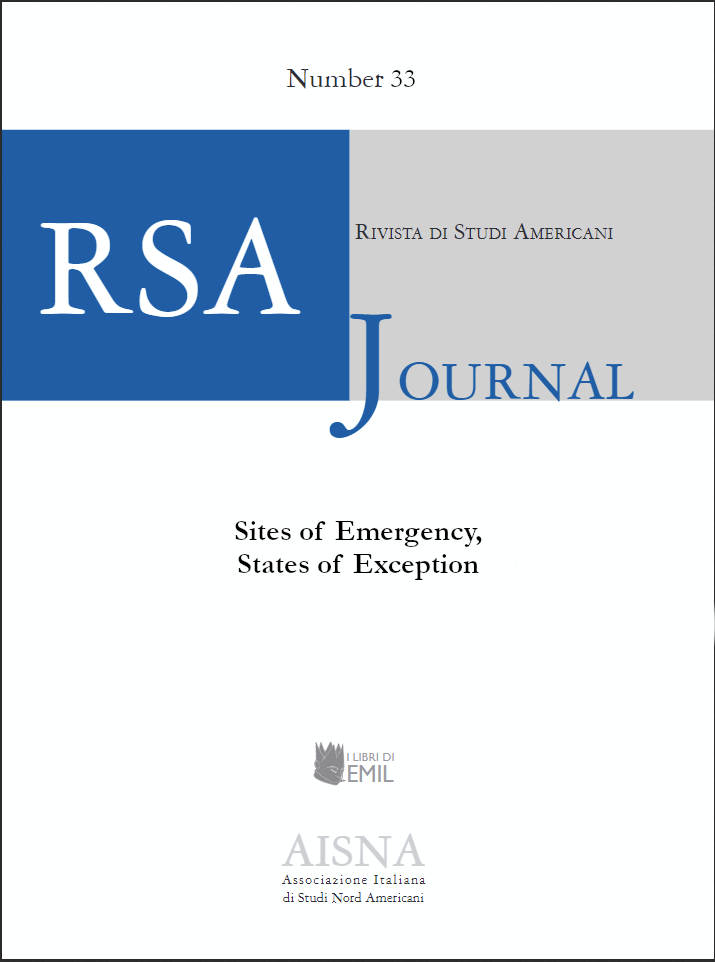Constructing and Contesting the State(s) of Exception
Joseph O’Neill’s “Netherland” and the American Transnational Novel
DOI:
https://doi.org/10.13135/1592-4467/8427Keywords:
states of exception, 9/11 events, post-national dreamsAbstract
The article investigates how the state(s) of exception generated by 9/11 events, post-national dreams and not-so-postnational realities are at play in Joseph O’Neill’s Netherland (2008). Constructed as a series of flashbacks from the narrative present of 2006 in London, the story is told from the perspective of the Dutch-born equities analyst Hans van der Broek, who, after moving to New York in 1998, experiences the social and psychological consequences of 9/11 and becomes emotionally estranged from his wife Rachel (who decides to return to England with their infant son). He seeks refuge and companionship in the immigrant world of American cricket and in his friendship with Chuck Ramkissoon, an Indo-Trinidadian immigrant, entrepreneur and small-time gangster, whose dream of building the nation’s first multicultural cricket park ends with the recovery of his body in a canal in Brooklyn. With a special focus on the self-reflexive dimension of the novel, the article explores the dialectics between the 9/11 anxieties and the endless promises of the American Dream, and in particular the state of emergency/exception as an identitarian mode of representation and the processes of memorialization and (re)memory it engenders.
Downloads
Published
Issue
Section
License
RSAJournal will apply a CC BY 4.0 license to all its contributions starting with issue 37 (2026). Previous issues are licensed under a CC BY-NC-ND licence.





